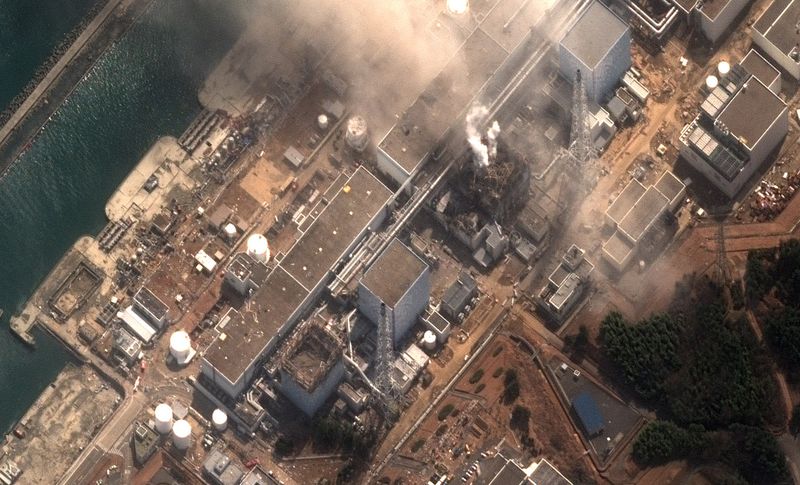
Radiation at the Fukushima Daiichi nuclear power plant in Japan surged Wednesday forcing workers to withdraw, further delaying efforts at cooling the nuclear reactors.
In the U.S, fears of a radioactive plume drifting across the Pacific sent many Americans rushing to the pharmacy and Web in search of potassium iodine tablets. But scientists with the Physicians for Social Responsibility say it would take five to eight days for any radioactive material to cross the ocean. If it did, Alaska and Canada would be the first to detect the materials.
Yet many stores in New York have sold out their stock of the tablets and Anbex, one of the FDA approved manufacturers of the product noted on its website that it doesn’t expect to have any more until April 18.
But potassium iodine only prevents the thyroid from absorbing acute radioactive exposure; it does not block the harmful effects of other types of radiation, scientists say.
"There's almost no risk of that nuclear material reaching New York. It’s a very low risk it will even reach the West coast,” said Dr. Andrew Kanter, a researcher of Clinical Epidemiology at the Earth Institute at Columbia University.
He said it may be useful for people in New York or other areas who live near nuclear reactors to have the tablets on hand in case there is a local accident. "But for it to be useful it has to be taken before the exposure," Kanter said.
He said he believes the Nuclear Regulatory Commission and local authorities should have a plan for distributing the tablets "as opposed to people going out and hoarding it for themselves."
Scientists with the Physicians for Social Responsibility have been monitoring the developments in Japan and noted that NOAA forecasts for the next three days show winds heading from East to West, which means residents of Tokyo are relatively safe, for now. It also means that much of the nuclear material, if it does cross the ocean, will be dispersed by wind, rain and clouds, but fish and other marine life may be absorbing the nuclear waste.
Scientists are still monitoring which direction any nuclear plume is headed.
The total amount of nuclear fuel stored at the Daiichi nuclear power plant is about 1,814 tons, and scientist noted that each reactor at the site contains as much radioactive material as 1,000 Hiroshima bombs (Chernobyl had the equivalent of 400 Hiroshima bombs).
There was a fire at Unit 4 on Wednesday and scientists said that unit stores the most fuel of all the reactors: 135 tons. The fire was extinguished, but the cooling pool's temperature continues to rise.
The explosion in Chernobyl dispersed contaminates for 1,000 miles, and Dr. Ira Helfand, the former president of Physicians for Social Responsibility and a nuclear expert, said Japan could see similar effects. The powerful isotopes released from the plant could contaminate the drinking water and soil around the Daiichi plant. And if the winds change course, he said, many other parts of Japan as well.
"It's conceivable that significant portions of the Tokyo metropolitan area could be contaminated in this way," he said.
